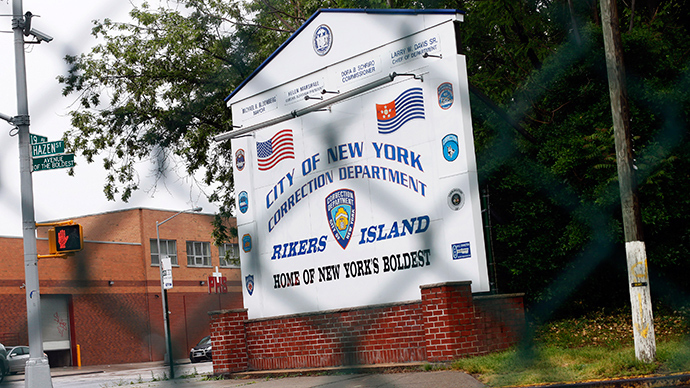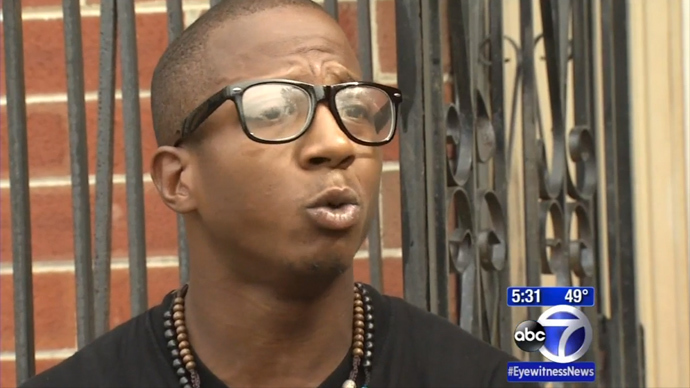'Zero tolerance: US prison staff must be held accountable for abuses'

There won’t be any change in the US prison system until police and guards are held accountable for their over-the-top methods while dealing with black prisoners, said attorney King Downing, founder of the Human Rights-Racial Justice Center.
The US prison system is broken. Its latest victim, Kalief Browder, hung himself last weekend after spending three years at Rikers Island. He was accused of stealing a backpack. His family didn't have the money to bail him out.
There is also the case of Albert Woodfox, who has spent the past 43 years in solitary confinement in Angola Three, the Louisiana State Penitentiary. Woodfox, is due to be released following a ruling by a US federal judge, was initially convicted of armed robbery. He ended up in isolation over allegations he killed a prison guard, accusations that have never been proven.
RT:Are these cases going to bring enough awareness to change the methods being used in both instances of solitary confinement?
READ MORE: 3 Rikers prison workers charged over inmate’s death
King Downing: I think the short answer is no. It will bring awareness, but will it bring change? No, these cases are like dominos; they’ve happened one after another. Both problems in Rikers Island around juveniles, and also the problems that happened in Angola [Louisiana State Penitentiary], the notorious prison around Albert Woodfox. Ironically, Albert Woodfox had joined the Black Panther Party because of conditions in his hometown in Louisiana, many of which are mirroring the exact same conditions that are happening in New York City at the present day that led to the suicide.
RT:How important is it to note that both men were black Americans. One of them underage, 16, at the time of his arrest?
KD: That is the critical question, the critical question of the juvenile and general criminal justice system in this country, is a question of race. Although, no one would speak about it. Overwhelmingly, Rikers Island is black and Latino. Overwhelmingly, Angola prison, the notorious - I keep repeating - overwhelmingly black. Angola has the southern history of being a former plantation. Right after the end of slavery, the slaves had a home to go right back to where they were charged with all kind of small things that is reminiscent of the broken windows that’s done in New York City, and the stop and frisk. So race is the crucial question, and until that is addressed the rest of this won’t be.

RT:As a lawyer how is possible to allow a teenager to stay in jail with no charge for three years?
KD: There are so many ways that there are problems with this particular case in Rikers Island. The first is the violence that was perpetuated there, not only by the inmates and the guards, but it was also organized. There was a program called ‘The Point;’ there was a program called ‘The Team’ where people were basically beaten up by inmates with the acknowledgement and the insistence of the guards.
The second problem is one that you’ve just asked about, and that is the long, long history of problems in New York City around high bail. A study was done that found 90 percent of the people in the New York City prison system, in the jail system, can’t afford $1000 bail. Here you have a young man with no prior charges, a young black man with no prior charges, being kept because the family is not able to afford that amount. And the overwhelming majority of people who are held in the New York City system are being held there simply for not being able to afford [the bail amount], not for any risk of flight or risk of harm, which is the real reason why bail should be held. And this goes on all across the country, and especially also in Louisiana.
RT:You seem to be pretty pessimistic about change, but what needs to happen for something to change then?
READ MORE: 43 years in solitary: Federal court blocks release of last imprisoned Angola 3 inmate
KD: What needs to happen is for there to be a step-up of action on all fronts. Lawyers, like the lawyers who are taking these cases, and in the suicide case Kalief has a $20 million dollar lawsuit going on that talks about these conditions. The city needs to start settling these cases and stop pushing them back. Also the kind of movement that we saw with Occupy [Wall Street], and that we saw around Mike Brown seems to be the way that the US responds to changes. After the massive protest out there, the Department of Justice went in and they got rid of the chief judge, got rid of the city manager and the police chief. So that kind of action has to happen and also be respected.
And the third part of it: Until police and guards get prosecuted for the actions that have happened there is not going to be any change. We have guards in Rikers Island, when Kalief attempted suicide, who cut him down and then beat him up. And each time he tried to commit suicide after that he was attacked and beaten again. That’s assault and battery. On top of that, they filed false charges against him for fighting and assaulting the guards after his suicide attempts. And rather than getting him any kind of counseling, which would also be official misconduct, he was denied food and other kinds of basic benefits as a punishment for attempting suicide rather than getting psychological help. So, until there is the same kind of prosecution of guards and police that we have seen in our communities of color: zero tolerance... I don’t think we’re going to see a change. That doesn’t stop me from encouraging and working for change, but that is what it’s going to take.
MORE:
The statements, views and opinions expressed in this column are solely those of the author and do not necessarily represent those of RT.
The statements, views and opinions expressed in this column are solely those of the author and do not necessarily represent those of RT.












